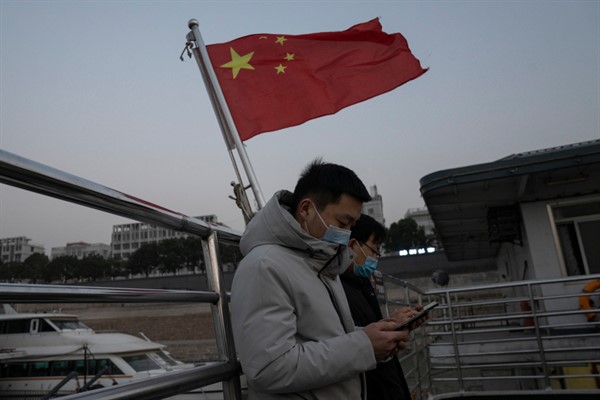Sometimes springtime comes and goes in a flash. That’s the way things felt early this month, when people who follow China were left agog at the extraordinary flourishing of discussion on Clubhouse, the young but fast-growing app that combines social media with audio chat. Though available in China since last spring, Clubhouse saw a spike in interest after a widely noted appearance by Elon Musk, a big celebrity in China, on Jan. 31. Still flying under the radar of authorities in Beijing, the app allowed Chinese users to join up with people from all over the world in mostly calm and reasoned discussions about what are normally treated as forbidden subjects under Beijing’s strict and resourceful censorship regime.
For the space of several weeks, members of the Chinese diaspora and longtime watchers of the country, myself included, obsessively wondered when the curtain would come down, waking each day expecting to learn that Beijing had banned the app outright, or that China’s so-called Great Firewall, as its technologically sophisticated and richly funded online censorship apparatus is known, would make it impossible for people inside of China to participate any longer. The unbridled conversation lasted far longer than many of us expected, but last week that day finally came. Beijing blocked access to the app for all but the tiniest, most technically sophisticated and daring of domestic audiences able to evade its censors.
What followed outside of China was a spate of eulogies for what had been an utterly unfamiliar moment of uniquely untrammeled expression—not just among Chinese themselves, but, just as significantly, between people in that country and the rest of the world. And along with the eulogies came a series of reflections about how thoroughly some of the biggest taboos in Chinese society had seemingly tumbled down. Day after day during Clubhouse’s brief but heady run with Chinese audiences, discussions were held about such normally forbidden things as the future of Hong Kong, Taiwanese democracy and political repression in China’s heavily Muslim Xinjiang region, which some have recently gone so far as to liken to genocide.

